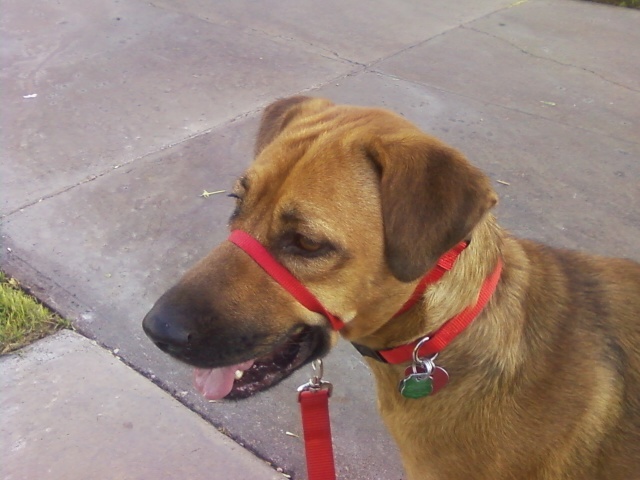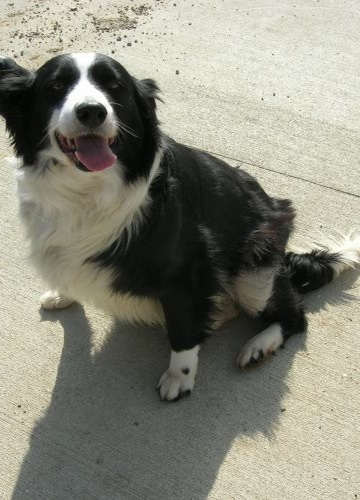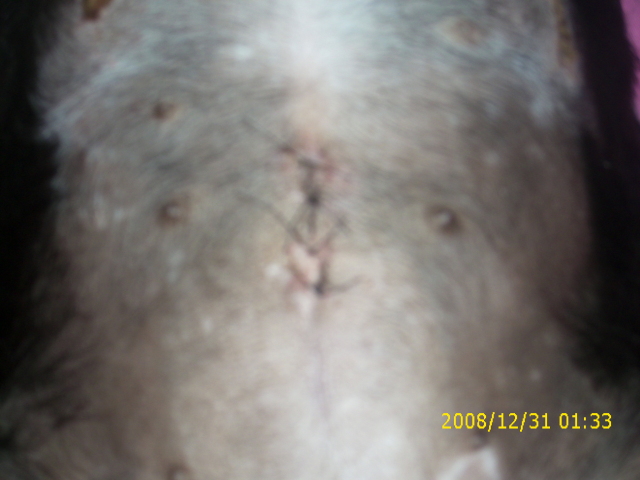Question"I have read your bio. I agree to read and rate your response fairly within three days. I have a chow mix that is about to turn 11. We are unaware of what the mix is as we acquired him from an animal shelter when he was just 4 month old. If i had to guess most people think husky. The last few months he has become real needy of attention. He will paw at us when we are sitting and put his head in your lap and nudge till he get extra attention. The last few week he will bang on the bedroom doors at night like he is scared to get into someones room to sleep. This is not normal for our dog. He has always been very affectionate but not in a needy way. My kids are concerned that his strange behavior signals he knows he is going to die. How can I calm their fears. Do you think there is any truth to animals being aware of their pending deaths. Other than what appears to arthritis he is a very healthy dog. He's never had any illness or injury. He get regular walks and has a good size yard to run in. His diet also has not changed in 8 years. His appetite is normal as well. Thank you for considering my question.
AnswerHi Eric,
Thank you for taking the time to read my bio and agree to the virtual contract stated in it.
You don't mention the ages of your children, but they appear to be very attuned to behavioural changes in your (possible Chow or Husky mix) dog.
As pets age, they can experience physical changes, such as arthritis (which you mention your dog experiences), changes in vision, changes in hearing, and other changes as well. Dogs being the social animals they are, they may compensate for these changes by turning to their human families for more attention and to fulfull needs which will make them feel more secure.
Since your dog has arthritis, he may be seeking the comfort of a bed or a carpeted room by banging on bedroom doors. You don't mention where he sleeps when he's not in the bedroom, but if it's a hard surface, it may tough on his joints at this time in his life. It might be a good idea to make sure that the surface on which he sleeps is comfortable as well as supportive to his joings. As well, he may be seeking the social comfort of his family, so you may want to allow him to sleep with family members so that he feels more comfortable.
At the age of 11, your dog is certainly in senior territory. However, old doesn't necessarily mean geriatric or unwell. You state that you have a "very healthy dog." I'm curious as to whether this is a statement you're making based on the behaviour you observe in your dog, or whether it's based on a recent veterinarian check-up. If not the latter, and your dog hasn't been to see a vet within the last six months, I would suggest bringing him in for a full blood chem and a Wellness check, checking thyroid levels, liver levels, kidney levels, and/or whatever your vet recommends in order to determine whether your dog's health status has, indeed, changed in any way. As well, dogs can experience Canine Cognitive Disorder, a condition similar to human dementia, and there is treatment available for dogs who may have this condition. Symptoms reported are some of what you've reported above, as well as walking in to walls or furniture, or the dog standing and staring as if he can't remember what he's supposed to do.
If any medical changes are detected with a vet check-up, a diet change may be suggested by your vet. However, many people feel "if it's not broken, don't fix it," and opt not to change their dogs' diets as they age as long as the dog is faring well from a medical point of view.
Again, I don't know the ages of your children, but depending on their ages, you might want to have a frank and age-appropriate discussion with them about the possibility that their beloved family dog may die at some point. I can't predict when, and really no one can barring a specific and terminal or untreatable medical condition - and even in those cases, sometimes dogs outlive the prediction. Sadly, most people outlive their dogs by many years, and very many of us feel our dogs certainly don't live nearly long enough for most of us. The years with our dogs pass way too quickly, and are precious. For most of us, dogs are our family members as much as any other member of the family. I know they are for me.
Here are a couple of references as well that may guide you in talking about the death of a pet with your children. One is the Association of Pet Loss and Bereavement (APLB.org). On that site you can find lots of links which may help you in addressing your kids' concerns, and if they're mature enough, they might want to look at the site themselves.
Another is a book called "The Death of a Pet: Human Responses to the Death of a Pet," by Kathleen V. Cowles which can most likely be found on BooksAMillion, Amazon and other book sellers.
As to whether dogs sense their impending deaths, there's speculation about that and no one can say for sure. Studies have recently been and are still currently underway which attempt to determine what degree of self-awareness dogs may have. Self-awareness may indicate that dogs, and other animals, are aware of more than what we give them credit for. Certain animals such as elephants seem to behave as if they're keenly aware of the death of other elephants in their herd, and they also seem to go through an almost human-like grieving process. And, while some dogs may be aware of the death of another animal, it's not really known for sure how death is comprehended by the dog in terms of permanence of loss and other aspects of the death. So, the short answer to your question about dogs being aware of death is that this is currently unknown particularly as to degree of awareness by dogs. What's known is that some dogs behave as if they're grieving the loss of another animal, and even a human. Even so, we don't quite know what the dog is thinking or comprehending - we can only observe how the dog behaves.
What IS known as that dogs experience physical changes similar to those which occur in aging humans, such as arthritis, diminished hearing, diminished eyesight, and may become more easily fatigued, which may affect how they behave in the world. As dogs age, they may desire to sleep more, and in more comfortable areas.
I would suggest you remain attentive to your dog's needs, following your very sensitive and savvy childrens' lead, providing him with more company and comfort if he seems to be seeking those. I'm not saying to reward or reinforce "clinginess," but just suggesting that you remain sensitive to his needs as he ages, and if he desires more company and attention and it's not inconvenient to anyone in your family, to provide him with it if you're able.
As well, be attentive to how he behaves on walks or during supervised romps in the yard (and at his age, he should be supervised in the yard at all times). Has he seemed to slow down, or tire more easily? If so, try to anticipate and accommodate his needs, including needs to drink more water or for more shade or warmth, for as long as he's with you. Sometimes changes are difficult to perceive, as they seem to occur gradually since we see our dogs every day.
I hope I've been sensitive to your questions on what is for most dog owners a sensitive topic. I wish your dog many more comfortable years. He is fortunate to have been rescued from a shelter, and fortunate as well to have a family that cares enough about his needs and his behaviour to write in to AllExperts.
Thanks again for reading my bio and agreeing to read and rate my response - very much appreciated.
With best regards,
Madeline

 My dog Kiya
Question
Kiya
My new dog Kiya is a 2 yr old German Shep
My dog Kiya
Question
Kiya
My new dog Kiya is a 2 yr old German Shep
 TRAINING POMERANIANS
Question
chichi&coco
I have two Pomeranian-mixed do
TRAINING POMERANIANS
Question
chichi&coco
I have two Pomeranian-mixed do
 New Eskimo puppy
Question
Honey the shy american
I just got my 10 week o
New Eskimo puppy
Question
Honey the shy american
I just got my 10 week o
 dog who growls and nips
Question
Ladybug
We adopted a rescue dog, Ladybu
dog who growls and nips
Question
Ladybug
We adopted a rescue dog, Ladybu
 I want to know how to remove my dogs spay stitches and the right way.
Question
this is the area that
I need to know how to r
I want to know how to remove my dogs spay stitches and the right way.
Question
this is the area that
I need to know how to r